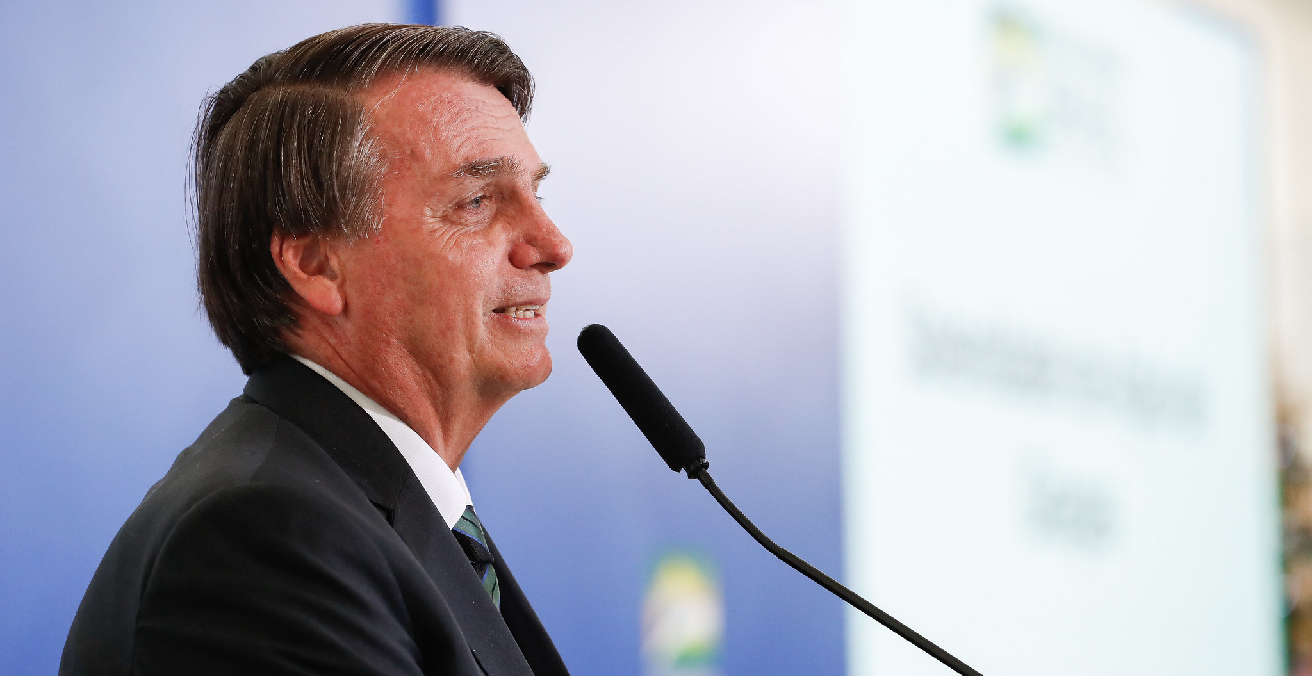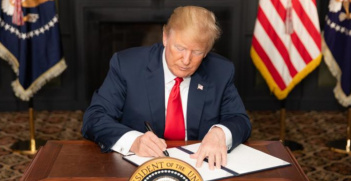The Biden Effect: How the Environment and Indigenous Rights Might Shape US-Brazil Relations

Jair Bolsonaro, the so-called “Trump from the Tropics,” will be mourning the defeat of the outgoing US president. With Joe Biden now in power, Bolsonaro’s vision for “big Brazil” will have to undergo significant revisions.
Apart from Vladimir Putin, Brazil’s president, Jair Bolsonaro, was the only significant world leader reluctant to congratulate US President-elect Joe Biden. It wasn’t until six weeks had passed, after the Electoral College results were formalised, that the Brazilian president finally conceded a Biden win. In his address congratulating Biden, Bolsonaro stated: “I will continue to build a Brazil-United States alliance, in defence and sovereignty, democracy, and freedom of thought throughout the world.” However, Bolsonaro’s reluctance, some argue, might signal a contentious US-Brazil relationship under Biden.
Deemed by many as the “Trump from the Tropics,” Bolsonaro’s “big Brazil” narratives echoed Trump’s populist “make America great again” slogan. In 2017, Bolsonaro’s son Eduardo caught up with Trump’s political strategist Steve Bannon, since they share “the same worldview” and were keen to join forces to combat “cultural Marxism.”
With Trump out of the White House, Bolsonaro will see a centrepiece of his presidency crumbling down: the US-Brazil strategic alignment based on ideological grounds. During the US presidential debates, when Biden suggested the creation of a global fund offering $20 billion to end deforestation and hinting at economic sanctions, Bolsonaro tweeted: ‘“OUR SOVEREIGNTY IS NONNEGOTIABLE,” adding that he will not accept “bribes” or Biden’s “baseless threats.”
Analysts have been cautiously optimistic about future US-Brazil relations. Nonetheless, with Trump out of the game, it will be increasingly difficult for Bolsonaro to consolidate his US-Brazil strategic dreams along ideological lines. A stumbling block in the US-Brazil relationship will be Bolsonaro’s untamed ideology and Trump-like tweets, setting the scene for friction. This will become problematic for Biden when dealing with the Brazilian president’s posturing on environmental protections and human rights, in particular the rights of Brazil’s first peoples. These issues all continue to deteriorate under the Bolsonaro administration, and are seen as key policy areas for Biden.
Bolsonaro’s ideology on the environment and the Amazon fires
President Bolsonaro has aggressively reviewed Brazil’s environmental laws and protections. As argued by Brazilian politician and environmentalist activist Marina Silva from the Sustainability Network Party, together with seven former environmental ministers, the current administration is turning Brazil into an “exterminator of the future.”
Another indication of Brazil’s ideology towards the environment and climate change is Brazil’s incumbent foreign minister Ernesto Araujo’s political views on climate change. Araujo argues that climate change is part of a plot by “cultural Marxists,” a Marxist conspiracy designed to compromise Western countries and the US’s global standing and increase Chinese and non-Western powers’ influence in international affairs. Araujo wrote on his blog that his main goal is to “help Brazil and the world liberate themselves from the globalist ideology,” regarded by him as anti-Christian and anti-Western.
Despite this, Brazil did not withdraw from the Paris Accord. As well, Brazil’s anti-China narrative might operate as political leverage under Biden since the US will continue attempts to counter Chinese influence in the region.
According to Brazil’s space agency, the Instituto Nacional de Pesquisas Espaciais (INPE), Brazil’s rain forest deforestation has gone up 88.4 percent June 2019, in comparison to the same period in 2018, due to the current government’s lenience towards illegal logging. The INPE has released data reporting a significant increase in the Amazon’s deforestation since early 2019. In May 2019, the agency registered a 34 percent increase compared with the same period in 2018. The agency measures annual deforestation rates from July to July, and current figures show that in the first 11 months of 2019 saw a 15 percent rise over the previous years’ figures. These figures continued to rise throughout 2020, with the Amazon suffering its worst fires within a decade. These uncontrolled fires in 2019 and 2020 direly tainted Brazil’s international reputation on environment protections.
The current administration’s predominant narrative is that the Amazon is a geographically and economically strategic area, rich in minerals and natural resources. Exploiting this area’s natural resources is perceived to benefit Brazil’s economy and strategic standing in the global community.
Protecting the environment and using the Amazon in a sustainable way are not mutually exclusive, but under Brazil’s far-right ideology and political radicalism, they seem irreconcilable. On this basis, Bolsonaro’s posturing could flare US-Brazil tensions when dealing with the Amazon, particularly considering Brazil’s claims of sovereignty over its rainforest.
Human rights violations of Brazil’s first peoples.
President Bolsonaro is well known for his ideological platform when dealing with Brazil’s indigenous communities. He declared from the beginning of his administration that he will “integrate” indigenous people, expressing concerns as they live in “isolated communities.” In 2019, Bolsonaro stated in a tweet that Brazil’s first peoples are “exploited” by international NGOs. In his words: “15 per cent of Brazil’s territory belongs to indigenous communities and less than 1 million people live in isolated parts of Brazil, and truly, they are being exploited or manipulated by NGOs.”
Bolsonaro has vowed to not demarcate one single inch of Brazil’s vast Amazon territory to indigenous communities. Following this line of thought, Bolsonaro contends that Brazil’s indigenous peoples need to “integrate,” as “Indians want doctors, dentists, television and internet. We will allow means for them to be just like us.”
Complicating things further, Bolsonaro promises to regulate gold mining throughout the country, including those found in indigenous reserves, stating indigenous peoples should “have the right to explore the soil in their own property.” With Brazil’s shift on indigenous demarcations, Brazil’s indigenous reserves of gold are increasingly under threat, with reserves constantly invaded by gold miners.
Last, but not least, the government-operated National Indian Foundation (FUNAI), changed its guidelines on indigenous peoples’ land demarcations, making demarcations increasingly difficult to implement. It is contended that these new guidelines subvert the foundation’s aims and principles, which serve the purpose of protecting Brazil’s indigenous peoples’ interests and rights. Unsurprisingly, in 2019, Bolsonaro appointed as FUNAI’s new director Marcelo Xavier da Silva, who holds close ties with Brazil’s agribusiness, sparking an international outcry from human rights activists worldwide.
Historically, the US-Brazil relationship has been strong, and the US’s increasing need to counter China increases Brazil’s political leverage, as well as Washington’s willingness to patch things up. Nonetheless, challenges will remain regarding Bolsonaro’s untamed far-right ideology, unpredictable tweets, authoritarian views, and blatant disdain for Brazil’s environmental protections and indigenous communities. This might trigger a robust US approach towards Brazil’s posturing on these matters, with Biden demanding greater transparency and accountability on the Amazon fires, and an end to the crippling of the rights of Brazil’s indigenous peoples. Only time will tell whether Bolsonaro, now that his ideological counterpart in the US is no longer on the job, will cow down or will irrationally continue chanting his far-right ideological mantra.
Flavia Bellieni Zimmermann is a Teaching Fellow and Doctoral Candidate in Political Science and International Relations at the University of Western Australia. She holds a Bachelor of Laws with First Class Honours from the Pontifical Catholic University in Rio de Janeiro and a Graduate Diploma of International Relations and Security Studies from Curtin University, Western Australia. She is a Brazilian political analyst and has written extensively in this field. Her research interests include Brazilian politics and society, Latin American politics, populism and nationalism, women in the global south, gender, politics and religion.
This article is published under a Creative Commons Licence and may be republished with attribution.





